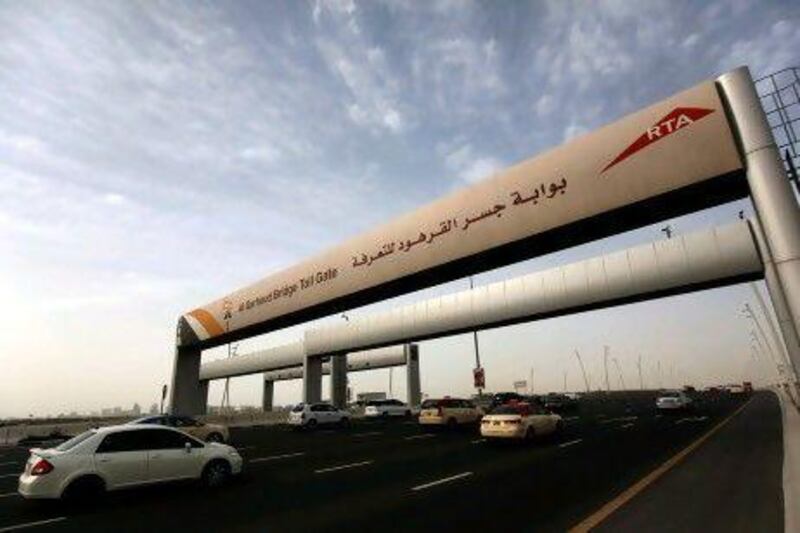Dubai is to raise US$800 million (Dh2.93 billion) by selling future receipts from road tolls to finance infrastructure projects across the emirate.
The receipts will be packaged into securities and sold to investors.
"This shows the Government is thinking outside the box about how to raise money and should be perceived positively by the market," said Chavan Bhogaita, the head of credit research, international capital markets, for National Bank of Abu Dhabi (NBAD).
"Salik is a stable and reliable source of revenue."
Citibank, Emirates NBD, Commercial Bank of Dubai and Dubai Islamic Bank were appointed by the Department of Finance to arrange the dual-currency, six-year financing, the Dubai Government's media office said.
The latest deal, which is expected to be further syndicated to a select group of banks, includes both a conventional and Islamic tranche.
Proceeds will be used to support projects under the Roads and Transport Authority (RTA).
As traffic in Dubai has increased in the past year, so Salik revenue has increased. Officials are already weighing plans to increase the number of toll gates on the road from the current four to boost receipts further.
The deal comes as uncertainty persists about the emirate's ability to repay an estimated $31bn in debt this year and next. The IMF recently warned that the emirate faced significant rollover risks because of repayments in the short term.
Yesterday's announcement represents the first significant financing venture by the Dubai Government since unrest broke out in parts of the Middle East at the start of the year.
It had taken advantage of more buoyant markets to issue a $1.25bn bond at the end of last September, a deal that attracted strong interest from international investors.
The latest development suggests officials are thinking of innovative ways to raise funds.
Securitisation, in which debt securities are backed by a stream of cash flows, are a relatively new way of raising cash in the region.
Emirates NBD, the UAE's largest bank, last year sold about Dh1bn of car loans to Japan. The loans were divided into securities that were then used as collateral for bonds issued in Japan.
It was rare for a regional government to sell debt instruments backed by future cash flows, Mr Bhogaita said.
Roads, bridges and other transport projects are among the schemes the RTA is keen to press ahead with this year. The emirate has already boosted its transport system with the near completion of the Dubai Metro and the continuing construction of Al Maktoum International Airport near Jebel Ali.
But financing Dubai's projects is expected to be more challenging this year as the Government aims to cut spending by almost 5 per cent to try to reduce its budget deficit.
Yesterday, Dubai's five-year dollar bond rose, with the yield falling to a record low.
"Dubai spreads should continue to trade tighter as the latest announcement will boost sentiment," said Mr Bhogaita.
Separately, Dubai Electricity and Water Authority (Dewa), the emirate's utility company, yesterday said it planned to repay Dh5.4bn in syndicated loans this month.
Half of the amount would be returned before its maturity date, it said. It will repay Dh2.7bn of the loan due on April 13 as well as a second part maturing on October 13.
Investor sentiment about Dubai's ability to repay its debts received a significant fillip last month with Dubai World's final $24.9bn debt restructuring agreement.
Barclays Capital said on Wednesday, however, that Abu Dhabi may offer further fiscal support to Dubai to help the emirate refinance maturing debt.
Abu Dhabi injected $20bn in financial assistance into Dubai after Dubai World sought to renegotiate debt repayments in late 2009.





